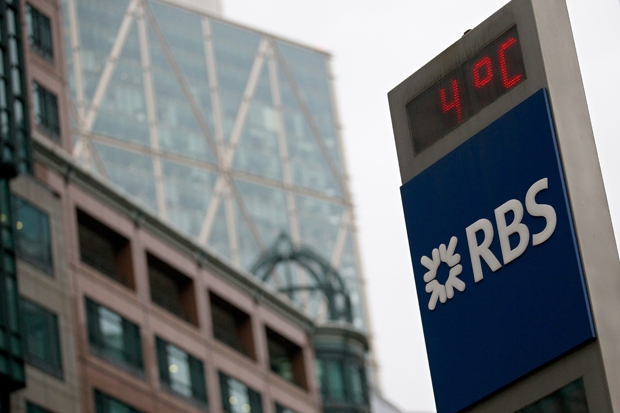Theresa May sent a strong message to the corporate world when she criticised the ‘irrational, unhealthy and growing gap’ between the pay of top executives and average workers. Yet what should be a vigorous debate on this topic — about the balance between fairness and the right incentives for optimum performance — never quite takes off. More evidence came to hand this week from the ‘independent non-party’ High Pay Centre: it reports that average pay for a FTSE 100 chief executive last year was £5.5 million, up by 10 per cent on 2014 and a third since 2010, and that the ratio between chiefs’ average total pay and that of their workers stood at 129:1.
Why should anyone earn so much, in absolute or relative terms, just for sitting at a desk? On the other hand, why compare bosses and workers when they operate in completely separate employment markets? A chief executive of a global business that happens to be listed and headquartered in London can only be compared to other chiefs in the same sector, and if we’re not prepared to pay for talent… These arguments are tiresomely familiar, yet still we wonder why top pay continues to grow several times faster than average pay without corresponding advances in profitability, productivity, shareholder value and other measurables of strategic management skill.
The answer is that most big companies are no better run today than they were a generation ago, when the top-to-bottom pay ratio was probably a third of what it is now. It’s just that everyone at the top of the corporate anthill has vested interests in the continuation of the trend, while no board would dare be first to break it — unless and until shareholders force them to do so.
What would be a ‘fair’ top-to-bottom ratio anyway? Is it 75:1, as decreed by the mutually owned John Lewis Partnership, or 65:1, as applied by TSB in its spin-out flotation from Lloyds? Those levels would demand a halving of average chief executive pay, which seems highly unlikely. But someone needs to do something to bend a trend that causes such social offence without delivering significantly better results.
Well, here’s a suggestion: Mrs May’s government is the major shareholder in RBS, which after eight years of losses is so close to a basket case that it might as well serve as a laboratory experiment. Its chief executive, Ross McEwan, saw his pay more than double last year, to £3.8 million, despite the bank’s troubles. Why not halve it again, and decree that no one can earn more than the chief? Who knows: freed from the risky behaviour and internal frictions that come with executive greed, the bank might even start to perform a little better.
Breakfast martini, anyone?
Nominations for the next decade’s billion–dollar UK ‘unicorns’ flood in: more next week, but meanwhile here’s a story to inspire every would-be entrepreneur.
Tyrrells Potato Crisps has been sold to a Texan popcorn-maker called Amplify for £300 million — making half a unicorn out of a business started 14 years ago by Herefordshire farmer Will Chase to use surplus potato crops. Chase sold for £30 million in 2008 to a private equity firm, Langholm, which boosted exports, sourced cheaper potatoes, and sold again in 2013 for £100 million to Bahrain-based Investcorp — which has tripled its money in three years.
Now Tyrrells’ ‘on-trend premium brands [will] align with Amplify’s better-for-you snacking strategy’. So everyone’s happy — including Chase, who reinvested his profits and redeployed his potatoes in a farm-based vodka distillery that sells 10,000 bottles a week, exports to Russia and offers a marmalade vodka ideal for your breakfast martini. What an admirable venture: we should all raise a glass to him.
In praise of France
How are things in la France profonde? My first answer, since you ask, is ‘like paradise’, as gentle breezes sway the Dordogne poplars under a cloudless sky. But there’s darkness too: the ‘coming war between Islam and Christendom’ that my French friends talked about so chillingly last year now feels a daily reality. And the August sense of politics suspended is amplified by hapless François Hollande’s indecision about whether to stand for a second presidential term. Yet there are also signs of business optimism, both small-scale, in new local ventures, and large-scale among the giants of the CAC 40 index — the likes of Capgemini, Orange, LVMH, Renault, Michelin and Danone, which have all been reporting healthy increases in interim profits.
We tend to think of France as a no-growth socialist economy hellbent on awarding itself yet more unaffordable ‘workers’ rights’ (a sixth week of paid holiday is one current proposal) while unemployment sticks in double digits and the talented young flee for London as fast as Eurostar can carry them. Yet this is also a nation of good businesses, large and small, that are often less short-termist and finance-driven than their UK equivalents, better focused on customer service, and capable of generating productivity per worker 14 per cent higher than ours.
And while its heavy industries are entwined with the state, France’s consumer sectors are led by outward-looking entrepreneurs: I was fascinated by recent obituaries of Jean-Claude Decaux, the inventor of the bus shelter that doubles as an advertising site, whose brand signature can be seen on half a billion billboards around the world.
So I’m resolved not to knock my French hosts in this difficult summer, but rather to praise them whenever I can. They, in turn, seem unoffended by Brexit, taking only the occasional dig: when I rang the vet to book my dog’s end-of-holiday re-entry inspection, she said, ‘Alors, so you wish to return to your commonwealth?’ And since the French are also, of course, peerless chefs, I’ll throw in a weekly restaurant tip: tonight I’ll be dining on the terrace of the charming Petit Paris at Daglan.







Comments